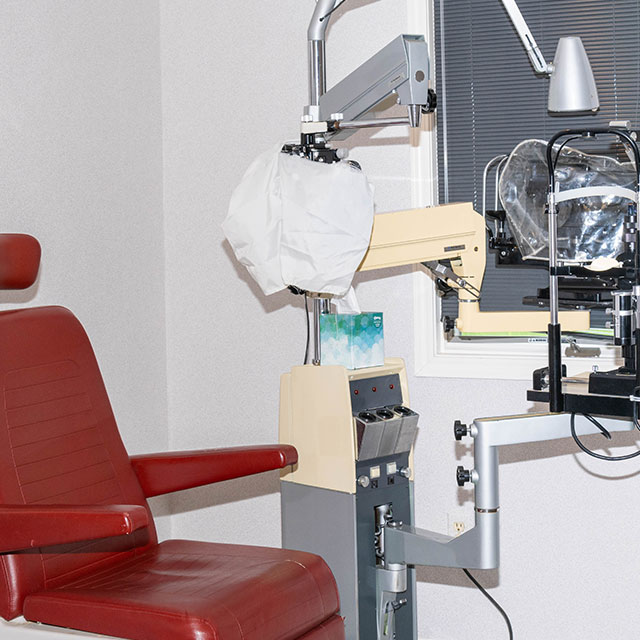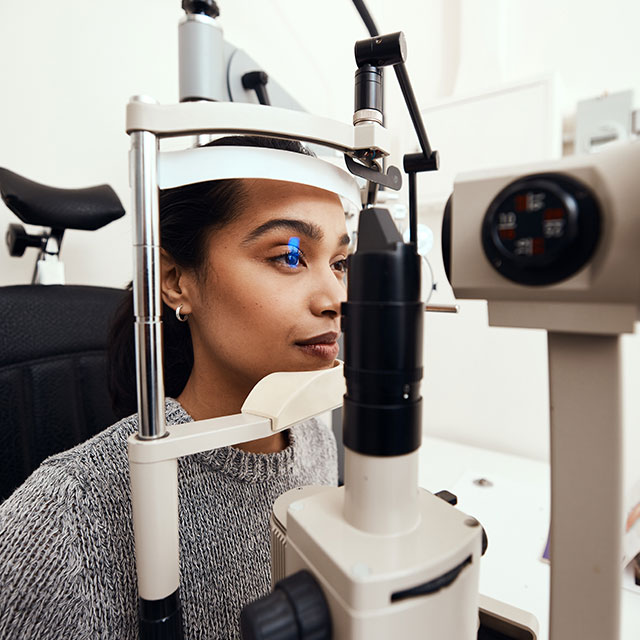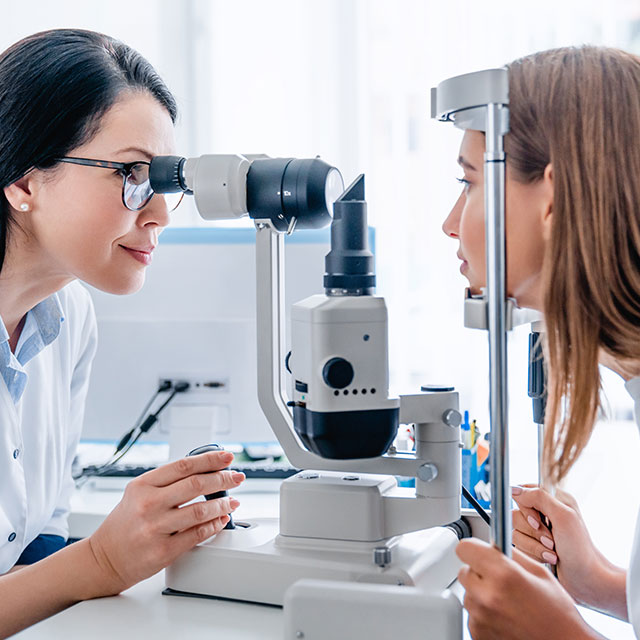
Comprehensive Eye Exams in Morris
Complete eye exams are more than just a routine check-up — they are a crucial investment in your overall well-being. Your eyes play a significant role in your daily life, impacting everything from work to leisure. Detecting potential issues early can prevent complications and ensure lasting clarity. Our comprehensive eye exams at Ortiz Eye and Hearing Associates go beyond assessing your vision; they encompass the health of your eyes and aid in the early detection of diseases. With personalized recommendations tailored to your needs, our exams empower you to make informed decisions about your eye health. Prioritize your vision by scheduling regular eye exams and experience the benefits of clear and healthy eyes for years to come.

Children’s Eye Exams
Your child's vision health is a priority, and our specialized children's eye exams at Ortiz Eye and Hearing Associates ensure they start their journey with optimal sight. According to the American Optometric Association (AOA), regular eye exams are essential for every child. The AOA recommends exams at six months of age, at three years old, and before starting school. For children without apparent issues, these exams should continue every two years throughout school.
Children with existing vision problems or risk factors should have more frequent exams. Common risk factors include premature birth, developmental delays, turned or crossed eyes, a family history of eye disease, and a history of eye injury. Our experienced team is dedicated to detecting any potential issues early and providing personalized solutions to nurture your child's visual development.
Invest in your child's clear vision and bright future. Schedule a children's eye exam with us and ensure their sight is off to a healthy start.


Adult Eye Exams
Taking care of your eyes is a lifelong commitment, and our comprehensive eye exams at Ortiz Eye and Hearing Associates are tailored to meet the needs of adults at all stages of life. Regular eye exams are not only essential for maintaining clear vision but also for monitoring your overall eye health.
The American Optometric Association (AOA) recommends an annual eye exam for adults who wear eyeglasses or contacts. Even if you don't require vision correction, you should still have an eye exam every two to three years up to the age of 40, depending on visual changes and overall health. For those with diabetes, high blood pressure, or other disorders, more frequent exams are often recommended due to the potential impact of these conditions on vision and eye health.
Once you reach the age of 40, it's advisable to have your eyes examined every one to two years. This ensures early detection of common age-related eye issues such as presbyopia, cataracts, and macular degeneration. Our experienced professionals are here to provide thorough assessments and personalized recommendations to safeguard your vision and eye health.
Prioritize your eyesight at every age. Schedule an eye exam today and experience the peace of mind that comes with clear and healthy vision.

